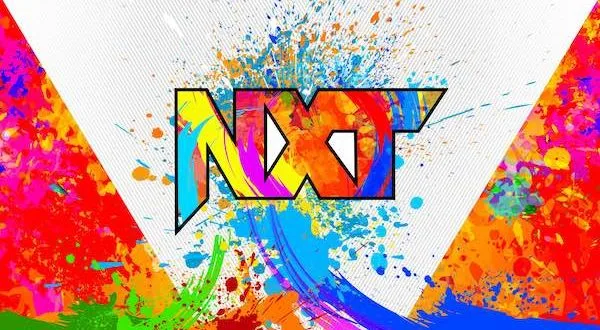The ‘Forbidden Door’ of Opportunity: Why NXT 10/21/25 Was Less a Go-Home Show and More a Statement
The October 21st edition of NXT was the final stop before Halloween Havoc, and while the card delivered a few thrilling final pushes, the most critical takeaway was not about the internal NXT rivalries. No, this episode served as the definitive, unmissable declaration that NXT has positioned itself as the true center of the wrestling universe—a bold, collaborative statement that exposes the insular thinking of the main roster.
The sheer volume of cross-promotional activity—with the TNA X-Division Championship defended, a multi-brand Speed Championship tournament in progress, the Broken Hardys appearing, and a sudden, organic challenge from AAA’s La Parka and Mr. Iguana—elevates NXT far beyond “developmental.” It’s a nexus of global talent, and the main roster’s insistence on exclusivity looks more dated with every passing Tuesday night.
1. The X-Division and the Global Main Event Scene
The defense of the TNA X-Division Championship saw Leon Slater prevail over Channing “Stacks” Lorenzo. This was more than just a title match; it was a philosophical statement. Slater, a young, high-flying champion, puts a prize from a rival company on the line, adding true, unpredictable stakes to a weekly show.
Contrast this with the Roman Reigns situation on SmackDown. Slater is a workhorse champion who is on TV, taking on all challengers, making his title feel like an active prize, not a ceremonial relic. When Slater and Je’Von Evans immediately followed their win by accepting a challenge from La Parka and Mr. Iguana for Halloween Havoc, the message was clear: NXT is where the world’s best wrestling happens, regardless of the logo on the jersey. The main roster, with its stagnant top titles, simply can’t compete with that dynamism.
2. The Tragedy of Sol Ruca: A Champion Devalued by Injury
The Sol Ruca segment, where she announced she was not cleared for Halloween Havoc, was an expertly crafted piece of drama that, nonetheless, exposes a structural fragility in the women’s division. Ruca’s injury, apparently suffered while challenging for a main roster title on SmackDown, now forces her to vacate her own NXT Women’s North American Championship.
While the emotional beat of Zaria stepping up to defend the title “in Sol’s honor” against Blake Monroe was compelling, the optics are poor. A homegrown, dual-champion megastar is sidelined, forcing her championship to be defended by proxy. The title itself—a secondary title—is now central to a major Pay-Per-View, which, while great for Zaria and Monroe, highlights the instability created when the main title picture (currently focused on Jacy Jayne and Tatum Paxley) lacks a compelling depth. Ruca’s absence is a massive creative blow, proving just how vital a few key stars are to the NXT product.
3. Trick Williams and Ricky Saints: A Contract Signing That Went Too Long
The main event contract signing between NXT Champion Ricky Saints and challenger Trick Williams suffered from a cardinal sin of wrestling booking: over-segmentation. The build to this match has been fire—a charismatic, cocky heel against the arrogant but deserving champion, a classic feud built on respect turned toxic.
However, the final confrontation felt stretched. The crowd was clearly desperate for Williams to finally explode on his former partner. When the predictable brawl finally broke out, it lacked the spontaneous, visceral urgency a great go-home angle requires. Saints getting the upper hand and standing tall is the traditional move, but for a challenger as hot as Williams, allowing him a more dominant final visual would have sold the Halloween Havoc main event with more conviction. NXT must be careful not to let their best stories drift into the familiar, stale rhythms of main roster booking.
4. The Broken Rules: Genius or Gimmick?
The vignette from The Hardy Boyz transforming into their “Broken” alter egos to announce a Broken Rules match against DarkState was a flash of genius. It gave a much-needed, unique texture to a rematch that, on paper, might have felt redundant.
This segment is the very best of the “Forbidden Door” mentality. It takes an established, beloved, and wholly unique concept from another promotion and allows it to breathe fully on the NXT stage. It’s an expert move, giving DarkState a main event spot with legendary talent, while allowing Matt and Jeff to be the most compelling versions of themselves. This is the value of open-minded booking: it creates great moments, not just predictable matches.
Conclusion: A Product Defined by Openness
NXT 10/21/25 was a show of incredible contrast. Its strengths—the global partnership with TNA and AAA, the genuine emotional stakes of the Ruca/Zaria friendship, the electric atmosphere around the Speed Tournament—are all based on its willingness to open its doors. Its weaknesses—the potential for over-scripted contract signings and the creative hole left by a sudden injury—are the same pitfalls that plague any long-form wrestling narrative.
The verdict on this show is that NXT is a superior, more relevant, and more engaging product than its main roster counterparts precisely because it refuses to be insular. It’s a dynamic, exciting, and people-first ecosystem where talent from all over the world can instantly matter. But what do you think? Did the contract signing fall flat, or are you ready for Trick to take the NXT Title? Let me know your thoughts in the comments below.
 Watch Wrestling Watch Wrestling | Watch WWE, AEW, AEW Dynamite, RAW, SmackDown, PPV, NXT, Rampage, Collision, Main Event, UFC, Indy
Watch Wrestling Watch Wrestling | Watch WWE, AEW, AEW Dynamite, RAW, SmackDown, PPV, NXT, Rampage, Collision, Main Event, UFC, Indy
